Why is the Gut Microbiome So Important?
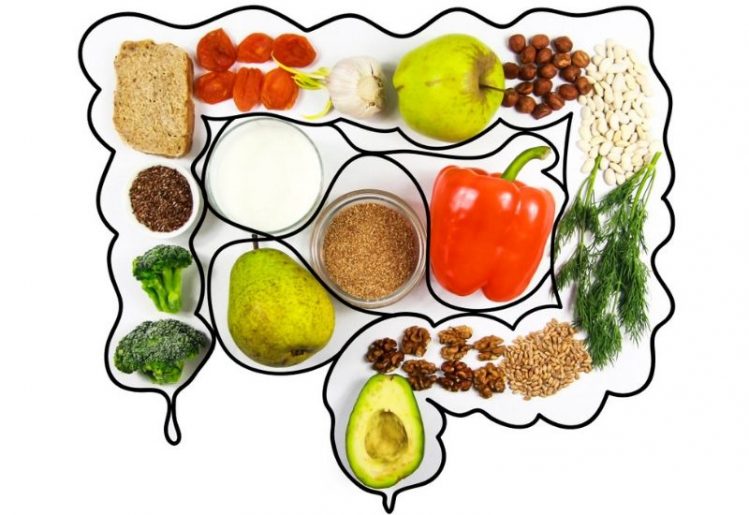 Each person’s gut microbiome is different, depending upon the bacteria and viruses to which we have been exposed. Some of this exposure occurs in the womb, but our gut microbiome is also influenced by our diets and environmental factors. While the bacteria in each person’s body is different, it is important that every gut microbiome maintain a balance of good and bad microbes. Recent research has found that an imbalance can expose us to disease and can even weaken the immune system.
Each person’s gut microbiome is different, depending upon the bacteria and viruses to which we have been exposed. Some of this exposure occurs in the womb, but our gut microbiome is also influenced by our diets and environmental factors. While the bacteria in each person’s body is different, it is important that every gut microbiome maintain a balance of good and bad microbes. Recent research has found that an imbalance can expose us to disease and can even weaken the immune system.
It has also been found that each strand of bacteria performs a specific function. For instance, some bacterial strands have been linked to an increased risk of obesity, while other strands have been found to affect the likelihood of developing autism. When an imbalance of the gut microbiome does occur, it produces an inflammatory response in the large intestine. From there, messages are sent to the brain, which then relays messages to the central nervous system and the rest of the body.
This interaction between microbes and human cells is why it’s so important to eat a healthy, varied diet. While you do need the vitamins and nutrients that are found in natural, healthy foods, you also need the bacteria that thrive in a diverse sampling of foods. The more diverse your diet, the more diverse your gut microbiome will become. A wide variety of bacteria will help your body strengthen its immunity against a variety of illnesses.
Artificial Sweeteners Toxic to Gut Bacteria, Says New Research
A recent study, which was conducted at the Weizmann Institute of Science, looked at the effects of non-caloric artificial sweeteners (NAS) on the gut microbiome. The project involved testing mice by providing them with drinking water that was infused with high doses of artificial sweeteners. For the study, sucralose, saccharin and aspartame were used. After an 11-week trial period, the mice fed a supply of NAS-infused water experienced elevated levels of glucose intolerance. Mice in control groups, which were either fed plain water or water infused with sucrose or glucose, did not experience the same increase in glucose intolerance. The intolerance in the test mice was observed as early as eight weeks into the trial, but ultimately peaked at the 11-week point.
When compared with the gut microbiomes of healthy mice, the gut microbiomes of mice fed artificial sweeteners exhibited significant changes. One observation made during the study was that the pathways observed to be common in cases of obesity and diabetes were stronger in mice who had been subjected to NAS-infused water. Among the artificial sweeteners toxic to gut bacteria, the researchers found that saccharin was especially destructive to the gut microbiome. This NAS in particular increased glucose intolerance, while also affecting the gut bacteria known to promote obesity. With continued consumption, saccharin was found to alter certain strains of Clostridiales bacteria. These bacterial strains have been previously linked to an increased risk for type 2 diabetes.
To verify these findings, the research team used mice that were specially bred to be devoid of gut microbes. The test mice in this new group had fecal bacteria transplanted into them from mice who were fed the saccharin-infused water. In addition to developing a heightened intolerance to glucose, the test mice also developed similar bacterial changes as those of the donor mice.
Additionally, healthy gut microbiomes were transplanted from donor mice to mice who had been fed saccharin. Upon testing the mice, the researchers found that the presence of saccharin did alter the healthy gut microbiome. This confirmed that saccharin was responsible for the changes to the gut microbiomes in the other test mice. The test mice were also found to have developed glucose intolerance after receiving the transplanted gut microbiome.
Sports Drinks May Be Hazardous to Your Gut Microbiome
 In another study, researchers looked at how non-caloric artificial sweeteners would affect human subjects when consumed via sports drinks. E. coli bacteria was modified to become luminescent upon interacting with toxins. This helped the researchers determine the level of toxicity in the gut microbiome. As a result, the E. coli bacteria were able to make it evident that exposure to a NAS resulted in increased toxicity in the gut microbiome.
In another study, researchers looked at how non-caloric artificial sweeteners would affect human subjects when consumed via sports drinks. E. coli bacteria was modified to become luminescent upon interacting with toxins. This helped the researchers determine the level of toxicity in the gut microbiome. As a result, the E. coli bacteria were able to make it evident that exposure to a NAS resulted in increased toxicity in the gut microbiome.
The study indicated that artificial sweeteners can alter the bacterial balance in the large intestines, which weakens the immune system. Altered bacteria in the body also increases the chances of developing a number of medical conditions. Heart disease, autism, obesity, diabetes and many other serious medical conditions have been linked to the health of the gut microbiome.
As a whole, this research suggests a healthy diet is even more important than previously believed. To increase the health of the gut microbiome, try adding more colorful plant-based foods to your diet. Switching to whole grains and eliminating processed meats is also important. Eating naturally fermented foods and taking a probiotic supplement can also help you boost the diversity of your gut microbiome. This research also suggests replacing sugar with artificial sweeteners may not be the harmless solution most people have believed for the past two decades.
 Autism affects one out of every 59 children born in the United States, and is more common in boys than in girls. A look at past statistics shows that incidences of autism have nearly doubled over the past 14 years. If your child has autism, you already know that the condition affects their ability to interact with others. It can be hard to identify in some children, because it can affect each person differently. Autism may not be curable as of yet, but it can be treated. To obtain the best results from treatment, it’s important to begin as soon as possible. This means being able to recognize the signs and symptoms of autism, such as:
Autism affects one out of every 59 children born in the United States, and is more common in boys than in girls. A look at past statistics shows that incidences of autism have nearly doubled over the past 14 years. If your child has autism, you already know that the condition affects their ability to interact with others. It can be hard to identify in some children, because it can affect each person differently. Autism may not be curable as of yet, but it can be treated. To obtain the best results from treatment, it’s important to begin as soon as possible. This means being able to recognize the signs and symptoms of autism, such as: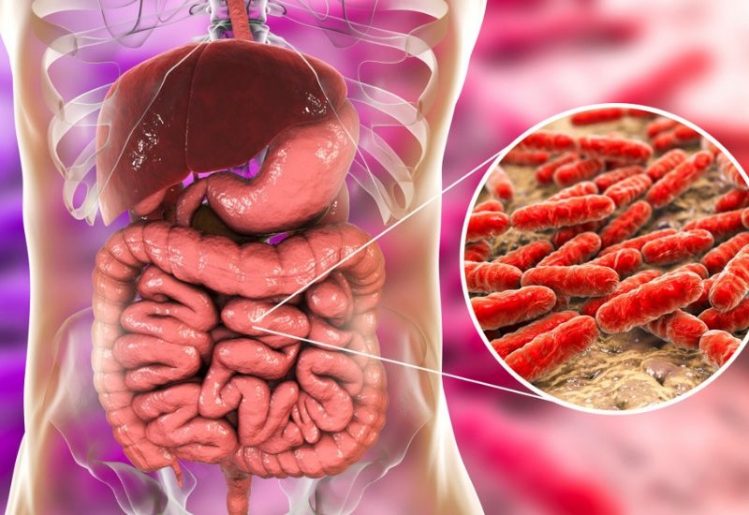 New research has found a link between gut bacteria and autism. The findings were the result of a research project intending to see if the common gastrointestinal problems experienced by most autistic children could be treated. Researchers at Arizona State University hoped to alleviate gastrointestinal problems experienced by
New research has found a link between gut bacteria and autism. The findings were the result of a research project intending to see if the common gastrointestinal problems experienced by most autistic children could be treated. Researchers at Arizona State University hoped to alleviate gastrointestinal problems experienced by 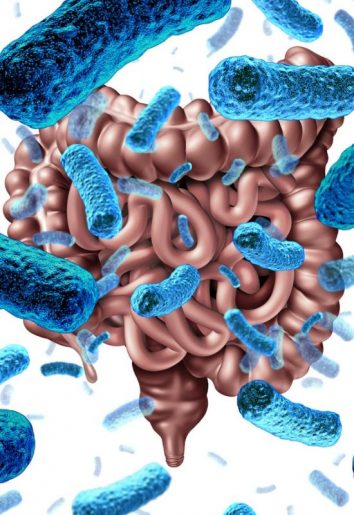 In general terms, the more diverse your gut microbiome, the better your health. Research has found that infants with a limited gut microbiome are more likely to develop allergies to peanuts and dairy products. As we expose ourselves to new microbes through a diverse diet and new environments, our gut microbiomes will grow accordingly. Here are just a few
In general terms, the more diverse your gut microbiome, the better your health. Research has found that infants with a limited gut microbiome are more likely to develop allergies to peanuts and dairy products. As we expose ourselves to new microbes through a diverse diet and new environments, our gut microbiomes will grow accordingly. Here are just a few  As we get older, our gut microbiomes go through changes just like other aspects of our health. As a result, the gut immune response becomes inhibited, opening the door to a variety of gastrointestinal illnesses. However, a study at the Babraham Institute in the United Kingdom has provided new hope that the gut microbiome could possibly be restored to full functionality.
As we get older, our gut microbiomes go through changes just like other aspects of our health. As a result, the gut immune response becomes inhibited, opening the door to a variety of gastrointestinal illnesses. However, a study at the Babraham Institute in the United Kingdom has provided new hope that the gut microbiome could possibly be restored to full functionality.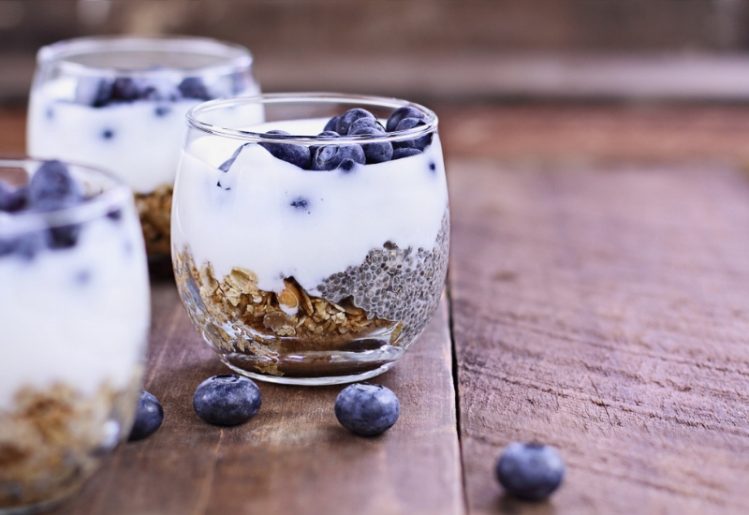 Unfortunately, most of the bacteria we ingest is harmful to us. Additionally, poor diets, which rely on foods high in sugar and trans-fats, encourage the growth of harmful bacteria into the digestive system. This is why it’s important to be more conscious of what you eat, and to try to eat
Unfortunately, most of the bacteria we ingest is harmful to us. Additionally, poor diets, which rely on foods high in sugar and trans-fats, encourage the growth of harmful bacteria into the digestive system. This is why it’s important to be more conscious of what you eat, and to try to eat  Often, people turn to artificial sweeteners, including Aspartame, as a means of controlling their blood sugar levels. However, recent studies have found that artificial sweeteners may be just as bad for you in this regard as regular sugar. While they may help limit weight gain, artificial sweeteners still cause a spike in blood glucose levels and also inhibits insulin production.
Often, people turn to artificial sweeteners, including Aspartame, as a means of controlling their blood sugar levels. However, recent studies have found that artificial sweeteners may be just as bad for you in this regard as regular sugar. While they may help limit weight gain, artificial sweeteners still cause a spike in blood glucose levels and also inhibits insulin production. The reason capsaicin has gained the attention of researchers in the United States is that there are lower instances of cancer in countries where spicy dishes are more common. Thailand and India in particular have lower numbers of lung cancer cases. Seeking to understand if there was a link between spicy foods and cancer, researchers began investigating and found that capsaicin seemed to be the common factor.
The reason capsaicin has gained the attention of researchers in the United States is that there are lower instances of cancer in countries where spicy dishes are more common. Thailand and India in particular have lower numbers of lung cancer cases. Seeking to understand if there was a link between spicy foods and cancer, researchers began investigating and found that capsaicin seemed to be the common factor. We experience pain because our nerves carry pain messages to the brain. This process is aided by the release of a chemical called substance P. It has been found that capsaicin helps exhaust the supply of substance P, making it more difficult for your nerves to carry those pain messages back to the brain. To prove this effect, researchers administered 2.5 grams of capsaicin to heartburn sufferers on a daily basis. Initially, the heartburn pain worsened, but it improved significantly after the first few days.
We experience pain because our nerves carry pain messages to the brain. This process is aided by the release of a chemical called substance P. It has been found that capsaicin helps exhaust the supply of substance P, making it more difficult for your nerves to carry those pain messages back to the brain. To prove this effect, researchers administered 2.5 grams of capsaicin to heartburn sufferers on a daily basis. Initially, the heartburn pain worsened, but it improved significantly after the first few days.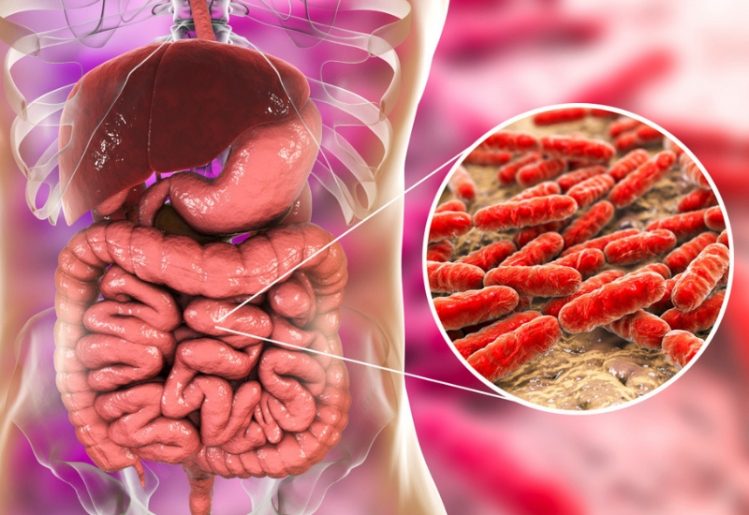 The process of populating the microbiome begins with the development of the fetus. As the fetus develops, the digestive tract is exposed to the microorganisms from the mother’s gut microbiome, as well as bacteria from the immediate environment. This mixture of microorganisms comes together to form a unique microbiome in the infant’s digestive tract. Even after birth, the baby’s microbiome is still developing. This is why there’s more bacteria in the digestive tract of a breast-fed baby than in the digestive tract of a formula-fed infant.
The process of populating the microbiome begins with the development of the fetus. As the fetus develops, the digestive tract is exposed to the microorganisms from the mother’s gut microbiome, as well as bacteria from the immediate environment. This mixture of microorganisms comes together to form a unique microbiome in the infant’s digestive tract. Even after birth, the baby’s microbiome is still developing. This is why there’s more bacteria in the digestive tract of a breast-fed baby than in the digestive tract of a formula-fed infant. In another study, which was conducted at the University of Chicago, researchers found that 11 strains of bacteria in the gut help
In another study, which was conducted at the University of Chicago, researchers found that 11 strains of bacteria in the gut help